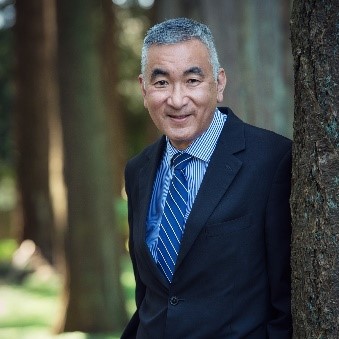Message from the Dean for LFS Community Connects: December 2021

I hope that you are preparing to ring in the holiday season with friends and family. I am cautiously optimistic that our family gatherings will still take place over the holidays, but I’m keeping an eye on the Omicron variant to see if it impacts our travel to Ontario.
This year has certainly been tenuous as we continue to live through the pandemic, but we have managed to return to some normalcy at UBC – teaching students in-person, conducting research in labs again, and launching a hybrid model of work for faculty and staff – I want to congratulate everyone in our faculty for meeting the challenges of COVID!
The other threat looming is this year’s climate-related events. In B.C. and around the world, these devastating events have served as a wake-up call to accelerate and address concrete ways to mitigate the impact of climate change. That means taking action today – not leaving it to the next generation to figure out.
At UBC, we have set a goal of achieving net-zero emissions by 2035 at the Vancouver campus, which is 15 years ahead of the previous target date. Through its Climate Action Plan 2030, UBC has committed to tackling emissions more proactively.
UBC’s big three sources of emissions are campus building and energy use, commuting to/from campus, and the campus food system. Within the next decade, 100 per cent of the district energy used to heat campus buildings is projected to come from low-carbon sources. The university will continue to advocate for SkyTrain from Arbutus all the way to Vancouver campus , as well as institute other more sustainable commuting options.
Tackling the campus food system, the university plans to address all components of UBC’s food system – food production, service providers, consumers, and food waste recovery. For LFS, this is an opportunity for our researchers and students to continue their interdisciplinary work to advance climate-friendly food systems, campus-wide.
I’m proud of the LFS researchers who are leading projects addressing climate change, many of whom are looking at these critical issues using cross-disciplinary expertise.
This includes our outstanding faculty members investigating variability in climate and its impacts on plant health and disease resistance; plant-soil interaction; health of early-stage finfish; among other areas. We also have researchers investigating rural and environmental sociology and the tradeoffs between livelihoods, biodiversity and food security outcomes, and constraints related to farm size, land tenure, and the inequitable distribution of resources.
For many in our alumni community, the impact of this year’s climate events have made for a long road ahead in rebuilding and recovery.
Many of us are taking action to build stronger and more resilient communities and we aim to support you.
I wish everyone a Happy holiday – and please don’t hesitate to contact me if you have ideas or suggestions.
Stay safe and well.
Cheers,
Rickey Yada
Professor and Dean